Navigating the Nuclear Narrative with HuffPost

Bonita Chester
Moderator
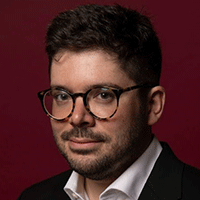
Alexander Kaufman
Presenter
Biography: Alexander Kaufman is a senior reporter at HuffPost, based in New York. He covers energy and climate change. A two-time winner of the SEAL Environmental Journalism Award, he has filed stories from the Arctic and the Amazon, Europe and East Asia, and has reported extensively on nuclear energy issues around the world. He has provided expert commentary on MSNBC, BBC, NPR and broadcasters around the world. Before joining HuffPost in 2014, he worked for The Boston Globe, the International Business Times and The Wrap.
Description: With the increasing focus on decarbonization and the need for clean energy sources, nuclear energy is gaining more attention in major publications. Join us for a panel discussion on the growing coverage of nuclear energy in the media, featuring Alexander Kaufman, the Senior Reporter at HuffPost. This panel will examine the factors driving the increased interest in nuclear energy and discuss how the media can accurately and fairly cover this important energy source.
Harnessing the Power of Storytelling in the Digital Age

Bonita Chester
Moderator

Mike Mueller
Presenter
Description: Learn how storytelling can be used to engage and educate audiences on important facts about nuclear energy and how the U.S. Department of Energy uses social media to share its mission and work with the public. This panel will delve into the strategies and best practices for using storytelling on social media and discuss the impact it can have on driving change and inspiring action.
Biography: Mike Mueller is the digital content director for the U.S. Department of Energy's Office of Nuclear Energy. He is responsible for the office's digital content strategy, content creation, and video production. Mike launched the office's Facebook, Twitter, and LinkedIn pages in 2018 and 2019. Since then, he has leveraged these platforms to increase web traffic from 20,000 to more than 215,000 average pageviews per month. Before working in the Office of Nuclear Energy, Mike supported the Department's Office of Energy Efficiency and Renewable Energy where he launched and managed the office's in-house video production efforts and tripled its average monthly pageviews for its blog. Prior to DOE, Mike spent six years as a sports broadcaster in Pennsylvania and Virginia and also spent four years as a special educator in the DC Public School system before returning to communications. Mike graduated from Syracuse University's S.I. Newhouse School of Public Communications in 2004 and also holds an Advanced Social Media Strategy Certificate from the school in partnership with HootSuite Media Inc.
Reactor Technology Panels
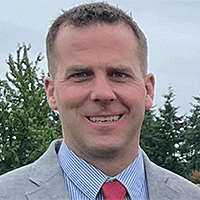
JJ Arthur
NuScale

Bonita Chester
Oklo
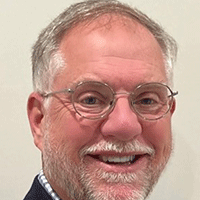
Mark Feltner
Dow Chemical
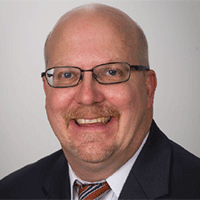
John Strumpell
Framatome
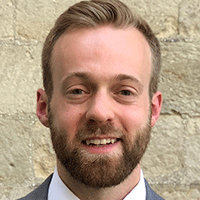
Ian Davis
Xe-100
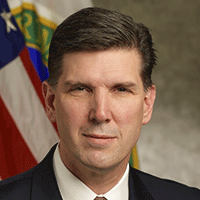
Edward McGinnis
Curio
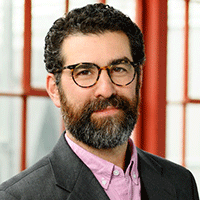
Oded Doron
Kairos

Steven Unikewicz
Natrium LLC
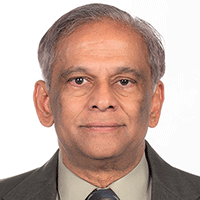
Raj Iyengar
USNRC
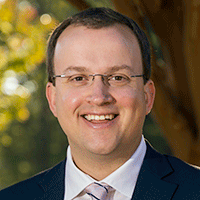
Craig Stover
EPRI
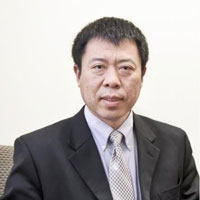
Guoqiang Wang
PNNL
Co-Chair & Co-Moderator
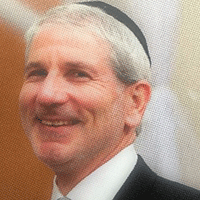
Maury Pressburger
Reactor Technology
Co-Chair & Co-Moderator
Description: A wide variety of advanced reactor designs are being developed internationally. Advanced reactors will have more comprehensive and modular designs, be inherently and/or passively safe, and have an expected reduction in costs. Two panel/round table discussions will focus on the latest innovations in reactor technologies and the challenges they are encountering, along with their timings for deployment. The panels are expected to include speakers from Advanced Reactor vendors, National labs, Electric Power Research Institute (EPRI) and the U.S. Nuclear Regulatory Commission (NRC).
Biographies:
Dr. Oded Doron is the Senior Director of Reactor Systems Design at Kairos Power. In this role, he directs teams for the development of the design and analysis for the Reactor Systems of the Kairos Power Fluoride-Salt-Cooled High-Temperature Reactor (KP FHR). His focus is on developing a design that is inherently safe, cost competitive, and can be built and licensed. Dr. Doron has a wide range of engineering experience and knowledge. He is the third generation in his family to be involved in steel fabrication and engineering. He previously owned the responsibility for the design of several in core components for TerraPower’s traveling wave reactor. He managed his family's steel fabrication business and he engineered and stamped the structural steel designs and drawings the company was fabricating. He also worked at Sandia National Laboratory in nuclear forensics, where he worked in the development of sensor technology for the detection of nuclear detonations in urban environments, was awarded an Outstanding Innovation award for a US patent application from his work and was co-inventor on a patent. Dr. Doron also worked in the shielding group at Knolls Atomic Laborator. Dr. Doron earned his Ph.D. at The University of Texas at Austin (UT) in nuclear engineering in 2007, and his B.S. at UT in mechanical engineering in 2002. He is a Professional Engineer registered in Texas with a dual competence in Mechanical and Nuclear Engineering.
Craig Stover is a Senior Program Manager in the Nuclear Sector at EPRI. Craig leads the Advanced Nuclear Technology (ANT) program which is focused on developing technology and solutions to support the deployment of the next generation of new nuclear power plants. Craig is also responsible for the Nuclear Beyond Electricity (NBE) Initiative and the Flexible Operations (FPO) program. At EPRI, Craig has managed the Balance of Plant NDE Innovation program. Craig led the advanced manufacturing and materials area in the Advanced Nuclear Technology (ANT) program. In addition, Craig worked in EPRI’s Balance of Plant Corrosion (BOPC) program. Craig joined EPRI after spending 6 years with South Carolina Electric & Gas (SCE&G). During his time at SCE&G, Craig worked on the VC Summer Project where he supported licensing and constructing two new nuclear power plants. Craig holds a BS degree in Mechanical Engineering from the University of South Carolina and an MBA from Ohio University.
Dr. Raj Iyengar leads the Reactor Engineering Branch in the Division of Engineering (DE) in the Office of Nuclear Regulatory Research (RES). He has over 30 years of professional experience in corporate and technical leadership positions. Dr. Iyengar is internationally recognized as an expert in the areas of risk-informed reactor component performance, advanced materials and manufacturing, and computational fracture mechanics. Before joining NRC, Raj has held corporate management positions in the automotive industry, where he led product development and applications efforts, and research positions at Battelle - Columbus, and University of Pennsylvania. Raj has authored or coauthored over 70 publications in digital twins applications, modeling and simulation of mechanical systems and reactor component integrity, materials degradation, development of steels, structural optimization, and computational mechanics. Raj holds a Ph.D. in Solid Mechanics and a Sc. M. in Applied Mathematics from Brown University, an M. S. in Mechanics and Materials Science from Rutgers University, and an M. S in Metallurgy from Indian Institute of Science.
J.J. Arthur serves at Senior Director of NSSS Engineering, where he leads a team of over 80 engineers responsible for the design and analysis of the NuScale Power Module. He has been employed by NuScale since 2010, serving in a variety of technical and leadership roles of progressing responsibility. Prior to NuScale, J.J. worked for 10 years in various technical roles in the specialty metals industry. He holds degrees in Applied Science and Mechanical Engineering, is a registered professional engineer in the state of Oregon, and serves on several ASME Code committees.
Mark Feltner is the Senior Nuclear Technology Manager for The Dow Chemical Company. He is responsible for integrating the use of nuclear technology to supply steam and electrical power to Dow's petrochemical facilities to reduce CO2 emissions. Mark has over 38 years' experience in the commercial nuclear power industry. He held a Senior Reactor Operator's license for River Bend Station and several managerial positions, including Operations, Refueling, Work Management and Outage. Mark holds a Bachelor of Science degree in Nuclear Engineering from the University of Cincinnati.
Ed McGinnis, CEO of Curio, is an accomplished senior U.S. government executive with over 30 years of proven experience in the fields of national and international nuclear energy policy and technical cooperation, national and international nuclear security and nonproliferation, science and technology policy and programmatic activities, international relations and global energy policy and cooperation. Experience includes serving at the White House as the Executive Director of the President's Council of Advisors on Science and Technology (PCAST), as Assistant Secretary (Acting) and Principal Deputy Assistant Secretary for Nuclear Energy at the U.S. Department of Energy (DOE); leading DOE’s international nuclear energy policy and cooperation for over 10 years as Deputy Assistant Secretary; serving as the founding Chair of the 65-nation International Framework for Nuclear Energy Cooperation (IFNEC) and its predecessor Presidential initiative – the Global Nuclear Energy Partnership (GNEP); as founding Director of the Secretary of Energy's Global Nuclear and Radiological Threat Reduction Task Force, and serving over 10 years in nuclear nonproliferation, including countering the global threat of nuclear weapons proliferation and serving in DOE’s Office of Foreign Intelligence.
Steven Unikewicz is a Program Manager, Design Authority for Natrium LLC. He has over 40 years’ experience in commercial nuclear energy industry as a design engineer, regulator, constructor and consultant. An ASME Fellow, Steve is member on ASME's Board on Nuclear Codes and Standards (BNCS), ASME Code for Operation and Maintenance of Nuclear Facilities (OM Code), ASME Code for Qualification of Mechanical Equipment (QME-1), the leader of the ASME Clean Energy Task Group – Advanced Reactors and the Chair of ASME’s Environmental Systems Division (ESD). Steve has a mechanical engineering degree from the University of Hartford.
Ian Davis is the Plant Monitoring & Diagnostics (M&D) Engineering Manager at X-energy. He leads the effort to develop the full scope Digital Twin for X-energy's advanced small modular reactor (SMR), the Xe-100. Ian also leads X-energy's ARPA-E GEMINA project, a 2 year $7.5M award with the objective of reducing fixed operations and maintenance (O&M) costs for the Xe-100 supported by digital technologies. In developing the Xe-100 Digital Twin, Ian focuses on the following areas: simulation, virtual reality, augmented reality, AI/ML applications, data historians, and general maintenance applications. Before joining X-energy in 2020, he developed and deployed over a dozen training simulators for nuclear power plants, internationally and domestically. Ian holds a M.S. and a B.S. in Nuclear Engineering, and has also held an adjunct professor role teaching graduate coursework in the areas of Statistics and Data Analytics. Ian is an ASME member serving on the Board of Strategic Initiatives (BSI) and the Committee for Verification, Validation, and Uncertainty Quantification of Machine Learning (VVUQ 70).
Code Development
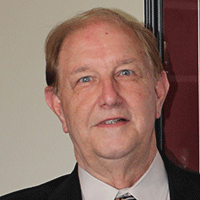
Thomas Vogan
Chair, ASME Board on Nuclear Codes & Standards
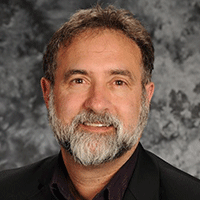
William Windes
Idaho National Laboratory

Ting-Leung (Sam) Sham
Idaho National Laboratory
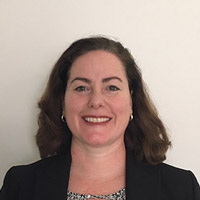
Kathryn Hyam
ASME Director of Nuclear Codes and Standards
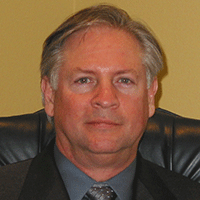
C. R. (Rick) Grantom
Risk Management Consultant
Description: Advanced reactor designs that are in various stages of development globally involve a variety of reactor technologies and construction techniques ASME standards development committees have initiated a number of actions to revise or expand standards to support the advanced reactor industry. Several noteworthy activities will be presented in detail by those directly involved in their development. Furthermore, feedback from the industry is being sought after so that ASME can provide further support to the rapidly moving schedules.
Biographies
Tom Vogan is the Chair of ASME Board on Nuclear Codes & Standards and the incoming Senior Vice President of the ASME Standards & Certification Sector. He has served various roles in ASME Codes & Standards since 1976 starting at the technical subgroup level and advancing through serving as Chair on ASME Standards Committees to his current positions. He also serves ASME in other corporate functions.
Dr. William Windes has over 35 years experience in extreme materials research with the majority being in nuclear materials. His material interests range widely from solid oxide fuel cell development, to space nuclear propulsion systems, to spent nuclear fuel issues. However, his focus for the past 20 years has been in the areas of nuclear graphite and carbon-based composite materials for the new High Temperature Reactor design. As the ART graphite program Technical Leadhe has overseen the large Advanced Graphite Creep (AGC) irradiation experiment at INL, developed one of the largest unirradiated nuclear graphite material property databases, assisted in developing the ASME graphite code, and has numerous interactions with the NRC, international organizations, and HTR vendors on graphite related issues. Will holds a doctorate in Material Science from the University of Idaho and a Master and Bachelor in Nuclear Engineering from University of Illinois and UC Santa Barbara, respectively.
Dr. Sam Sham is the Nuclear Science & Technology Directorate Fellow at the Idaho National Laboratory, Idaho Falls, Idaho, USA. His technical interest is in deformation and failure of advanced materials and structural mechanics technologies for high temperature reactors. He is currently serving as the Technology Area Lead for advanced materials, with a portfolio that crosscuts the gas-cooled reactor, fast reactor, and molten salt reactor programs of the Advanced Reactor Technologies (ART) Program of DOE Office of Nuclear Energy (NE).
Sham is a member of the ASME Board on Nuclear Codes and Standards and ASME Boiler and Pressure Vessel (BPV), Section III, Standards Committee. He currently chairs Subgroup on High Temperature Reactors which, together with six subordinate working groups and task group, is responsible for ASME BPV Code, Section III, Division 5, High Temperature Reactors. He was elected ASME Fellow in 2000.
Kate Hyam is Director of Nuclear Codes and Standards in the ASME Standards and Engineering Services department, responsible for ASME's portfolio of standards applicable to nuclear facilities and technology. Her previous assignment focused on the areas of Big Data, additive manufacturing, and verification and validation of computational modelling and simulation. She also has experience in the development of standards in the areas of construction safety, and thermal energy storage. Prior to her return to ASME, she was a design engineer for Bechtel Power, responsible for mechanical systems for natural gas and coal fired power plants.
C. R. (Rick) Grantom is an operational risk management and analysis consultant specializing in the development and application of technical risk management programs for engineered facilities. Mr. Grantom has over 40 years of experience in the commercial nuclear industry supporting both international and domestic nuclear power industries, as well as non-nuclear industries. He was employed at the South Texas Project for 33-years and during that time he held various station positions including the Manager, Risk Management as well as successfully completing STP's Senior Reactor Operator Management Certification training. Mr. Grantom was responsible for STP's Risk Management and Analysis programs. As Manager of Risk Management, Mr. Grantom was responsible for STP's plant specific Probabilistic Risk Assessment (PRA), and the application of the PRA to station programs and processes. He was responsible for the technical direction, development, regulatory approval, and implementation of key first-of-a-kind pilot risk informed applications. This included the Graded Quality Assurance Program (i.e., component level risk significance) which was the proof-of-concept pilot and precursor to 10CFR50.69. Also, included was the Risk Managed Technical Specification Program (i.e., equipment out of service times), which was the proof-of-concept pilot for industry Risk Informed Completion Time programs. Lastly, the pilot application on risk informed GSI-191 which was related to nuclear emergency sump performance. Mr. Grantom is also the Co-Chair of the ASME/ANS Joint Committee on Nuclear Risk Management (JCNRM), a national consensus Standards body, which is responsible for the development, publication, and maintenance of PRA Standards and Guidance concerning nuclear risk management. Mr. Grantom is also an Ex-Officio member of the ASME Board on Nuclear Codes and Standards. Mr. Grantom is a frequent lecturer and trainer on uses of risk methods for organizational risk management. Mr. Grantom is a nuclear engineering graduate from Texas A&M University and is also a registered professional nuclear engineer in the State of Texas.
Modular Construction Panel

Amit Varma
Purdue University

Bradley Tomer
Idaho National Laboratory

Kai Zhang
Bechtel
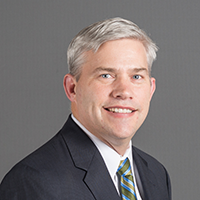
Bret Tegeler
Westinghouse
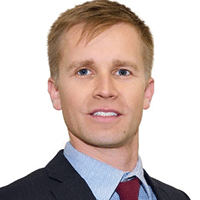
Marc Albert
ANT
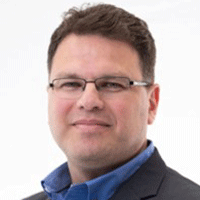
Hasan Chakras
EPRI
Biographies
Dr. Kai Zhang: Dr. Kai Zhang is a Senior Structural Engineer at Bechtel. His expertise includes SC composite structures, modular construction, seismic analysis and design, simulation, safety and reliability of structures, seismic fragility, and digital engineering. In the current role, he is responsible for finite element analysis and risk-informed, performance-based (RIPB) design of structures, systems and components (SSCs) of advanced reactors. Prior to joining Bechtel, Dr. Zhang was a Principal Engineer at Westinghouse Electric Company where he was a technical lead for modular construction, seismic fragility, and digital engineering. Dr. Zhang serves in several code committees, including the ASCE Dynamic Analysis of Nuclear Structures committee and AISC Steel Nuclear Structure committee.
Brad Tomer is Chief Operating Officer at the National Reactor Innovation Center at the Idaho National Laboratory managing the day-to-day operations of the Center. Brad has a wealth of experience that he is applying at NRIC which includes lean startup principles and advanced engineering processes and lessons learned from experience managing large energy demonstrations to accelerate the demonstration and deployment of advanced nuclear energy.
Prior to NRIC, Brad served as Interim CEO and VP of Operations for Avitas Systems, a GE Venture offering robotic-based data collection techniques and cutting-edge analytics and artificial intelligence to drive predictive industrial insights and actions in the electric power and oil and gas industries. Brad is former Chief Engineer and General Manager of Advanced Technology for GE Oil and Gas where he was responsible for developing and implementing engineering processes and procedures and developing advanced technologies across the oil and gas value stream.
Prior to GE, Brad served as Chief Operating Officer at the National Energy Technology Laboratory implementing science and technology programs across the energy industry. While at NETL, Brad served as Director of the Office of Major Demonstrations overseeing a multi-billion-dollar investment in carbon capture, utilization, and storage from large point source emitters of carbon dioxide. In addition, Brad served as NETL's Director for the Strategic Center for Natural Gas and Oil developing and implementing research and development programs in oil and gas exploration, production, infrastructure, and utilization.
Marc Albert is a Principal Project Manager in the Advanced Nuclear Technology Department (ANT) at the Electric Power Research Institute (EPRI). Marc manages and overseas the research projects related to Advanced Manufacturing and Materials within the nuclear industry. His responsibilities include providing project management and technical support for (1) determining the optimal methods (including advanced manufacturing methods) for fabrication (2) identifying and developing new applications of materials, and (3) identifying and developing new or improved methods for joining, inspecting and maintaining piping and components.
Prior to joining EPRI, Marc was a Design Engineer with Westinghouse Electric Company, where he most recently worked within the Fuel Product Engineering Department. His experience as a mechanical engineer exposed him to various mechanical and material tests of fuel assembly and core components. Marc also supported manufacturing improvements, including qualification of additive manufacturing techniques for fuel/core components. During his 10 years at Westinghouse, he also served in various design roles on the AP1000® pressurized water reactor including ASME equipment design, fabrication and on-site design support for the V.C. Summer construction project. While on-site at the V.C. Summer project, Marc was part of the structural modules’ group, resolving design, construction and shop fabrication issues, while ensuring designs met licensing and design basis requirements.
Marc received his bachelor’s degree in Mechanical Engineering at the University of Pittsburgh. In 2018 he earned his professional engineer license and is currently licensed in South Carolina.
Dr. Hasan Charkas has more than 22 years of experience in research and engineering and is a Principal Project Manager in the Advanced Nuclear Technology group at the Electric Power Research Institute (EPRI). Dr. Charkas manages the engineering design, construction, and project execution and optimization research areas to help deploy new nuclear power plants around the world. He also leads EPRI's nuclear research on digital twins.
Prior to joining EPRI, Hasan was the engineering supervisor for vessel internals engineering qualifications for Framatome Inc. He directed and managed engineers responsible for qualifications and stress calculations of components for nuclear steam supply systems (NSSS).
Prior to joining Framatome, Hasan designed structural strengthening solutions for deficient and under-designed structures for Structural Group Inc. He used nonconventional techniques like carbon fiber reinforced plates together with conventional engineering techniques including external post tensioning to design repair solutions for structures.
Dr. Charkas delivered engineering seminars to teach structural engineers how to design external strengthening reinforcement using composite materials and taught undergraduate engineering courses.
Dr. Charkas is a professional engineer licensed in the Commonwealth of Virginia. Hasan holds a Ph.D. in structural engineering from Kansas State University.
Advanced Reactor Research
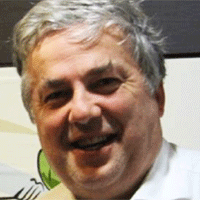
Francesco Saverio D'Auria
University of Pisa

Tanaka Masaaki
Japan Atomic Energy Agency
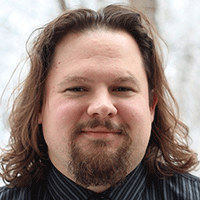
Joshua Kaizer
Nuclear Regulatory Commission
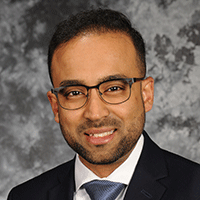
Yasir Arafat
MARVEL
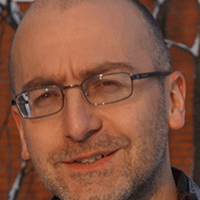
Paolo Ferroni
Westinghouse
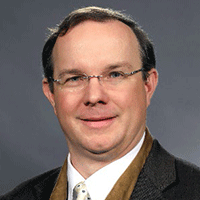
Joshua Parker
BWX Technologies, Inc.
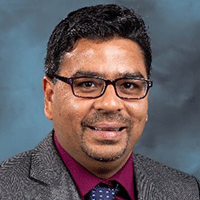
Prashant Jain
Oak Ridge National Laboratory
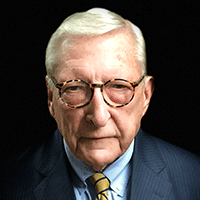
Ted Garrish
Deep Borehole Demonstration Center
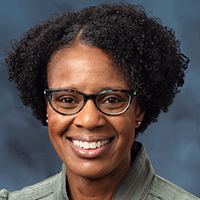
DeLeah Lockridge
Oak Ridge National Laboratory
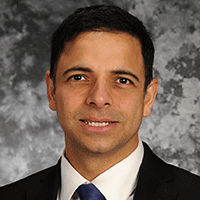
Piyush Sabharwall
Idaho National Laboratory
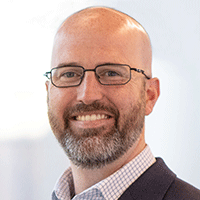
Jordan Robison
Natura Resources, LLC
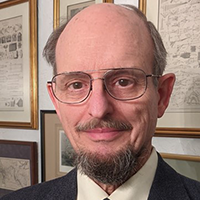
Stephen Herring
Pathfinder Energy Development

Stephen M. Bajorek
NRC
Biographies
Joshua L. Parker, P.E. is director, business development for BWXT Advanced Technologies LLC, a subsidiary of BWX Technologies, Inc. (BWXT). He is responsible for strategy development, sales growth, business expansion, and identifying and building strategic partnerships and alliances. Before joining BWXT, Mr. Parker worked in the nuclear fuel business unit at Framatome Inc. as manager of fuels business development. He also held roles as R&D project manager, commercial fuel supply project manager and core design engineer. Mr. Parker has managed projects that developed new and novel fuel analysis methods, seeing them successfully through U.S. Nuclear Regulatory Commission review and licensing, and has experience with both boiling water reactor and pressurized water reactor fuel technology. He has also managed projects for engineering design and supply of nuclear fuel to a major U.S. utility for six operating cycles and led first-of-a-kind fuel transitions and fuel assembly insertion programs for the U.S. Light Water Reactor fleet. Mr. Parker holds a bachelor's degree in nuclear and radiological engineering from the Georgia Institute of Technology. He serves as member of the external advisory board for the nuclear engineering department at the Georgia Institute of Technology under the George W. Woodruff School of Mechanical Engineering. He is a fellow of the World Nuclear University Summer Institute program, and a professional nuclear engineer registered with the Commonwealth of Virginia
Dr. Paolo Ferroni is a Consulting Engineer at Westinghouse Electric Company and Technical Lead of the Westinghouse Lead Fast Reactor (LFR) project. In this role, Paolo oversees design and testing activities aimed at the development of an economically competitive and versatile Generation IV plant based on LFR technology. In doing so, he leverages expertise and lessons learned accumulated by Westinghouse over more than fifty years of nuclear power plant commercialization. With main expertise in reactor thermal hydraulics and fuel performance, after receiving his PhD from the Massachusetts Institute of Technology Paolo joined Westinghouse where since then he has been involved in multiple development programs, both domestically and internationally, in the field of advanced reactors and encompassing both Light Water and non-Light Water Reactors.
Theodore J. Garrish is currently the Launch Executive Director for the Deep Borehole Demonstration Center, a non-profit organization developing and executing a multi-year, multi-stakeholder program that will cumulatively deliver a (non-radioactive) demonstration of the on-site deep borehole disposal process for waste. Prior to his current position, he served as Assistant Secretary for International Affairs at the US Department of Energy and previously as General Counsel and Assistant Secretary for Nuclear Energy. While in the private sector, he worked at the Nuclear Energy Institute on government relations for fuel cycle issues and later with CH2M HILL on nuclear export controls with U.S. companies and assisted emerging nuclear power nations to help them develop legal and regulatory programs and national policies for the use of nuclear energy technology.
Dr. Prashant Jain is the interim Section Head for the Advanced Reactor Engineering and Development Section in the Nuclear Energy & Fuel Cycle Division at Oak Ridge National Laboratory. Prashant received his MS (2006) and Ph.D. (2010) in nuclear engineering from the University of Illinois, Urbana-Champaign, and his BTech (2004) in mechanical engineering from the Indian Institute of Technology, Bombay. He has over 15 years of experience in advanced multi-physics modeling, nuclear thermal design and safety analyses, computational fluid dynamics (CFD), single- and two-phase turbulent flows and heat transfer, analytical benchmarks, lattice Boltzmann method, and parallel scientific software development. At ORNL, he leads the development of advanced three-dimensional multi-physics design and safety basis models for the present highly enriched uranium core and the proposed low-enriched uranium core designs of the High Flux Isotope Reactor (HFIR). He was also the principal developer of the ORNL's lattice Boltzmann method CFD code, PRATHAM, and the thermo-fluidics thrust lead for the Transformational Challenge Reactor (TCR) project. Prashant is a recipient of the American Nuclear Society (ANS) Mark Mills Award for his doctoral research on lattice Boltzmann methods and UT-Battelle's 2019 Mission Support Award for his contributions towards the HFIR event causal analysis.
DeLeah Lockridge began her career in March 1999 with Westinghouse Electric Company, and she held various engineering and project management positions during her time in Pittsburgh, PA. In 2011, DeLeah accepted a sitebased assignment as Site Project Engineer at the Vogtle Units 3&4 Nuclear Construction Project in Waynesboro, GA. She transitioned to other challenging roles as construction of the advanced nuclear power plants progressed. In December 2018, DeLeah joined BCP Engineers & Consultants as a Subcontracts Program Manager for Southern Nuclear – continuing to support completion of Vogtle Units 3&4. In August 2021, DeLeah joined UT-Battelle as a Senior R&D Staff member at Oak Ridge National Laboratory in Knoxville, TN. In January 2023, she became the Nuclear Operations & Licensing Group Leader (in the Fusion and Fission Energy and Sciences Directorate), in addition to her staff responsibilities. DeLeah will use her years of practical experience, leadership acumen and collaborative skills to make a global impact in the nuclear industry. DeLeah Lockridge received her Bachelor of Science degree in Nuclear Engineering, Certification in Systems Safety Engineering, and a Minor in Spanish from Texas A&M University in 1998. She received her Master of Engineering degree in Nuclear Engineering from Penn State University in 2008. In May 2022, DeLeah completed her Master of Business Administration (MBA) degree (with honors) from the University of South Carolina - Aiken. DeLeah is a professionally licensed Nuclear Engineer in Pennsylvania and Georgia, and a certified Project Management Professional (PMP).
Francesco D'Auria earned a Master degree in Nuclear Engineering in 1978 and PHD degree in Nuclear Reactor Safety in 1980 at University of Pisa. Research grant and 'staff' researcher since 1978 and 1981. Associate Professor at University 'La Sapienza' in Rome in 1991, Chair (Full) Professor at University of Pisa in 2000. 'Adjoin Professor' at University of Genova 1993-2003. ANS member since 1981. Member in several international working groups at ANS, EC, IAEA and OECD/NEA, 1980-2024. Research interest: enhancing and promoting the best use of computational tools in nuclear reactor safety and licensing, methods for validation, uncertainty, scaling and design of experiments, reliability of passive systems.
Piyush Sabharwall, Ph.D., is a Senior Staff Nuclear Research Scientist at Idaho National Laboratory (INL). He has more than 18 years of research and development experience in nuclear and thermal engineering. He is highly regarded throughout the nuclear industry for his expertise in heat transfer, fluid mechanics, thermal design, thermodynamics, energy systems, and nuclear safety analyses. He manages the Irradiation Experiment Thermal Hydraulics Analysis Department under Nuclear Science and Technology Directorate at INL and was recognized as an Asian American Engineer of the Year for 2022. He also serves as the Technical Area Lead on DOE Office of Nuclear Energy's Microreactor R&D Program. Dr. Sabharwall has helped cement INL's leadership in areas including verification and validation, development of experimental programs and test beds, small modular reactors, molten salt reactor technology, and integrated energy systems. He has authored two books, contributed chapters to technical books, and published over 320 peer-reviewed publications. His leadership has allowed him to serve in several key positions and guide U.S. DOE programs, as well as industrial organizations, helping capital and technical projects navigate complex regulatory landscapes. He has been responsible for building and strengthening strategic partnerships with universities and collaborating with area technical leads from other national laboratories to advance science and technology strategies for INL and the U.S. Department of Energy. He holds an Adjunct Associate Professor appointment in the Department of Mechanical Engineering at Texas A&M University and an Adjunct Professor at University of Michigan in the Department of Nuclear Engineering and Radiological Sciences. He holds a PhD in nuclear engineering; master's degrees in renewable energy and sustainability systems, engineering management, and nuclear engineering; and a bachelor’s degree in mechanical engineering.
Jordan Robison is the VP of Engineering and Program Management for Natura Resources, LLC. In this role he oversees the work taking place at Natura's four partner universities; Abilene Christian University (ACU), Georgia Tech (GT), Texas A&M (TAMU) and the University of Texas (UT) as they seek to design, license and build a Molten Salt Research Reactor (MSRR) at ACU. He also oversees Natura's development of a commercial line of small modular molten salt reactors. Prior to joining Natura, he was the Director of Engineering for the Nuclear Energy eXperimental Testing (NEXT) Lab at ACU, where he managed the engineering resources on a variety of molten salt R&D projects and served as the Program Manager for the MSRR project. Mr. Robison earned his undergraduate degree in physics from Austin College (2010), a master's in mechanical engineering from the University of Texas at Dallas ('14), a master’s in business administration from Abilene Christian University ('22) and is a licensed professional engineer in the state of Texas.
Dr. J. Stephen Herring is Chief Nuclear Designer for Pathfinder Energy Development and also Director of the Center for Space Nuclear Research in Idaho Falls. In 2014 he retired from the Idaho National Laboratory, where he was the chairman of the Laboratory Fellows and Deputy Director for Nuclear Systems Analysis and Design. He is a Fellow of the American Nuclear Society and in 2004 received its Mishima Award for contributions to the development of thorium-uranium fuels. In 2011-12 he served a one-year assignment as technical advisor to the DOE Office of Nuclear Energy in Washington, DC. Immediately prior to that assignment, he was responsible for the development of solid oxide cells for the efficient electrolytic production of hydrogen and synthetic transportation fuels using nuclear energy. He has been active in nuclear engineering at INL since 1979 and at CSNR since February 2016. Steve holds BS degrees in mechanical and electrical engineering from Iowa State University (1971), and a PhD in nuclear engineering from the Massachusetts Institute of Technology (1979). He was a Rotary Foundation Fellow at the Eidgenössische Technische Hochschule in Zürich, 1974-75, and a Visiting Scientist at the Kernforschungszentrum Karlsruhe in 1987.
Stephen M. Bajorek is the Senior Technical Advisor for Thermal-Hydraulics at the U.S. Nuclear Regulatory Commission (NRC) in the Office of Nuclear Regulatory Research, and has forty years experience in the nuclear industry. He provides guidance for development of the TRACE state-of-the-art thermal-hydraulics code, advanced reactor analysis, and the NRC’s thermal-hydraulic test programs. He is currently leading the NRC's efforts to develop simulation capabilities for advanced non-light water reactors. Prior to joining the NRC staff he was a member of the faculty at Kansas State University and has over 15 years of industrial experience with Westinghouse as a code developer and analyst. He has authored or co-authored over 200 publications in areas ranging from boiling and two-phase flow, reactor safety, natural convection, and boiling of multi-component fluids. Dr. Bajorek received his Ph. D. from Michigan State University, and M.S. and B.S. degrees in Mechanical Engineering from the University of Notre Dame.